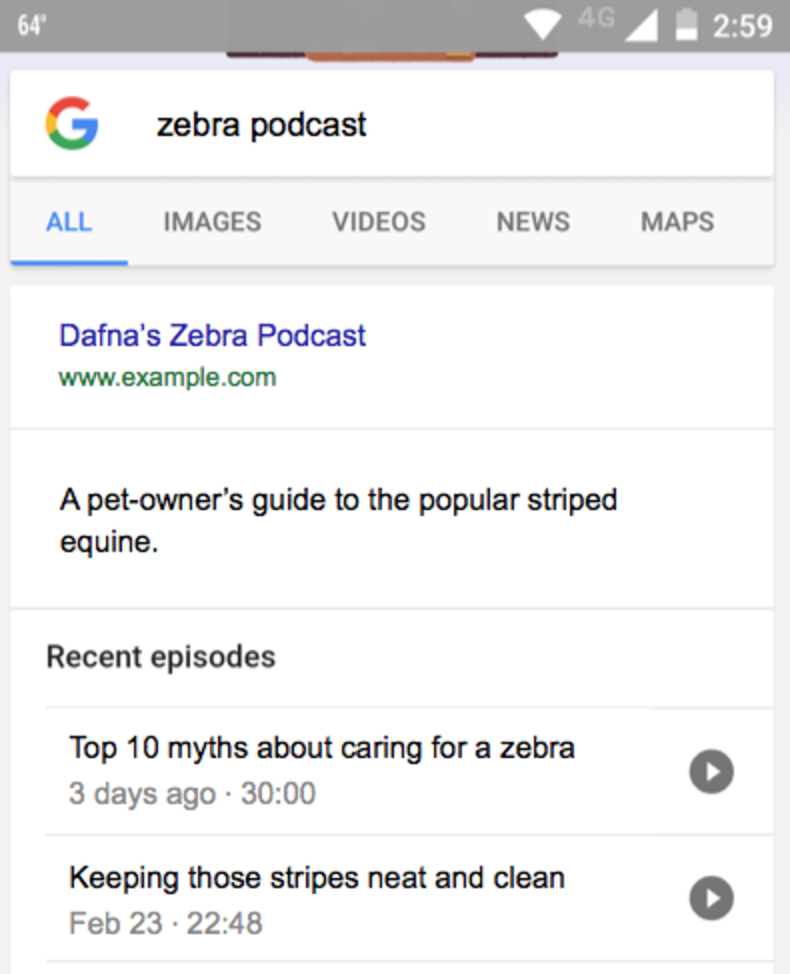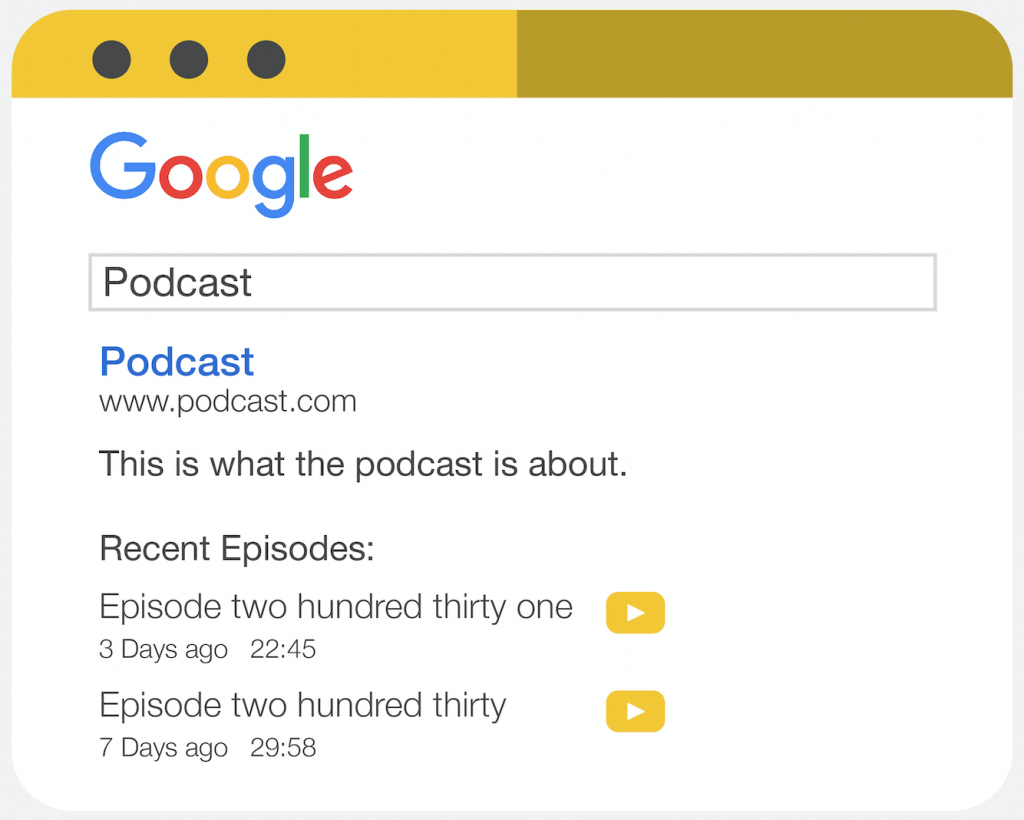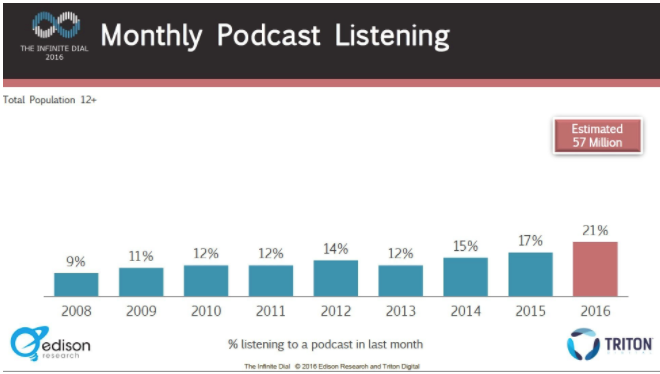On its Developers blog, Google stealthily launched some new guidelines for structured data to bring rich results for podcasts to search results.
To date, this is only available via Google Home or the Google Search app v6.5 or higher on Android devices, but support for Chrome on Android is coming soon.
This was first noted over on Search Engine Roundtable, and Google provided an image to show how this will look in practice:
Podcasts can be indexed and embedded in results, which could be a particularly useful functionality for Google Home and smartphones.
The example above shows just how much SERP real estate can be occupied when this is implemented correctly. An embedded podcast player within the search results also means users won’t even need to click through to a landing page to listen to an episode.
How can I get my podcasts indexed?
The first stage to achieving this is to get podcasts indexed, and Google has provided very clear and thorough guidelines on how to do this:
- Expose a valid RSS feed describing the podcast that conforms to the RSS 2.0 specifications as well as the feed requirements described below.
- The feed must contain at least one episode that conforms to the requirements given on this page.
- The podcast must have a dedicated homepage with the elements described below. The homepage must have a <link> pointing to your RSS feed.
- The homepage, the RSS feed, and any non-blocked audio files must be exposed to Googlebot; that is, they must not require a login, and must not be protected by robots.txt or <noindex> tags.
Adding Structured Data for Podcasts
Structured data implementation can lead to increased SERP presence and click-through rate, but it also provides search engines with valuable guidance when they crawl your content.
The full list of required tags required within a podcast’s RSS feed is provided in Google’s post and it includes the following:
Tags must be added at both a podcast- and episode-level within the RSS feed in order to show up via rich results. This is an essential consideration and is one that will need a bit of extra time from developers on an ongoing basis.
We can surmise from these elements and the zebra podcast example provided by Google that the typical structure of a podcast listing will therefore look as follows:
Are brands taking advantage of this yet?
These are very early days for this feature, but I have conducted a number of searches via the Google Search app in the US for a range of podcasts and have yet to see this live.
However, Google has been quite surreptitious about this recent release, and it will take some time for brands to implement the requisite changes too.
Nonetheless, support for Chrome on Android is coming soon and presumably, other Google software and hardware will follow suit. That will provide quite a wide audience and any brand that releases podcasts will want to avail of this new opportunity to attract visits.
In summary
Combined with its developments in voice search, mobile, and personalization, it makes strategic sense for Google to add podcasts to its rich results-enabled assets.
Data from Edison Research show the significant year-on-year growth for this medium in the US, with further increases expected in 2017:
As such, it is worth paying attention to this now for any brand that produces podcasts – especially those that exist in a competitive niche.
It may take some time to implement the technical changes and see them go live but, as with all such industry updates, the early adopters will reap the greatest rewards.
Article graphics by Chelsea Herbert
source https://searchenginewatch.com/2017/03/30/google-adds-rich-results-for-podcasts-to-serps/





No comments:
Post a Comment